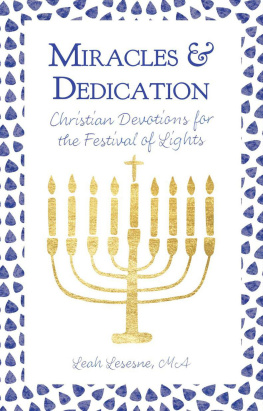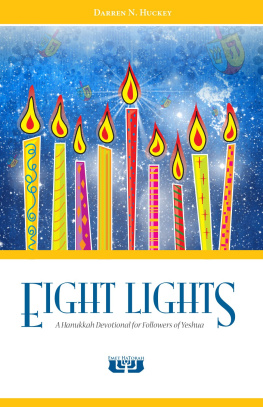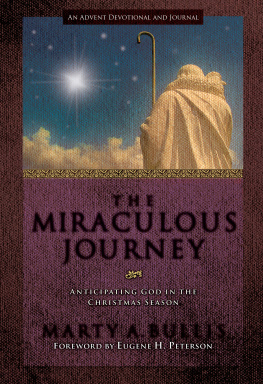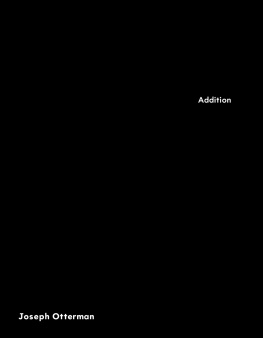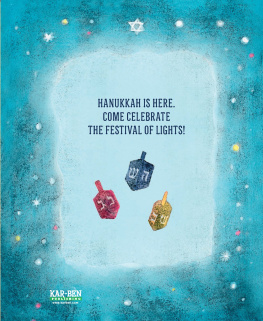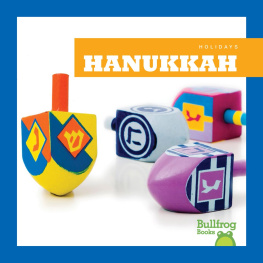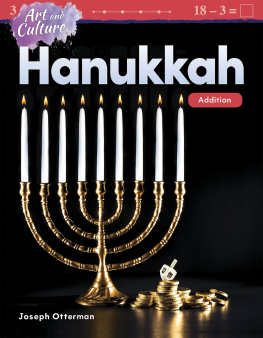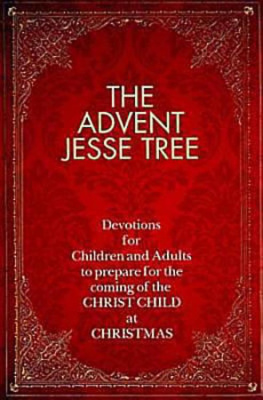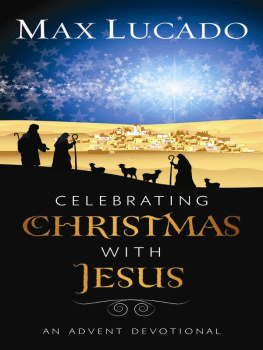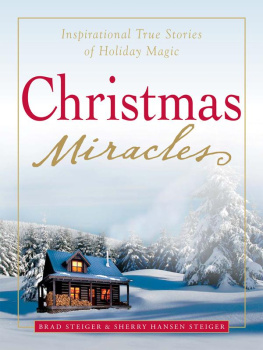Miracles and Dedication: Christian Devotions for the Festival of Lights
Leah Lesesne
Published by Shelemah LLC, 2020.
While every precaution has been taken in the preparation of this book, the publisher assumes no responsibility for errors or omissions, or for damages resulting from the use of the information contained herein.
MIRACLES AND DEDICATION: CHRISTIAN DEVOTIONS FOR THE FESTIVAL OF LIGHTS
First edition. October 12, 2020.
Copyright 2020 Leah Lesesne.
Written by Leah Lesesne.
10 9 8 7 6 5 4 3 2 1

Copyright 2019 Author Leah Lesesne
All rights reserved.
ISBN:
This book or parts thereof may not be reproduced in any form, stored in a retrieval system, or transmitter in any form by any meanselectronic, mechanical, photocopy, recording, or otherwisewithout prior written permission of the author, except as provided by the United States of America copyright law.
Scripture quotations are from the versions below as denoted by their initials:
New American Standard Bible (NASB)
Copyright 1960, 1962, 1963, 1968, 1971, 1972, 1973, 1975, 1977, 1995 by The Lockman Foundation
New International Version (NIV)
Holy Bible, New International Version, NIV Copyright 1973, 1978, 1984, 2011 by Biblica, Inc. Used by permission. All rights reserved worldwide.
Holman Christian Standard Bible (HCSB)
Copyright 1999, 2000, 2002, 2003, 2009 by Holman Bible Publishers, Nashville Tennessee. All rights reserved.
English Standard Version (ESV)
The Holy Bible, English Standard Version Copyright 2001 by Crossway Bibles, a publishing ministry of Good News Publishers.
The Passion Translation (TPT)
The Passion Translation. Copyright 2017 by BroadStreet Publishing Group, LLC. Used by permission. All rights reserved. thePassionTranslation.com
Table of Contents

A Brief History of Hanukkah
At its core, Hanukkah is a celebration of the miraculous. In 168 B.C. Jerusalem was occupied by Syrians who desecrated the temple and set up idols of worship for Greek gods. The Jews came under extreme persecution, given the options of death or religious conversion. The head priest at the time was Mattathias, and his son Judah Maccabee became a leader among the Jewish people in resisting the Syrian army. The story of their revolt and the miracle of Hanukkah can be found in 1st and 2nd Maccabees1, Apocryphal books that hold historical significance.
Despite extreme disadvantages, Judah Maccabee and his revolters were successful against the Syrians and after winning two major battles reclaimed control of the temple. After they removed the desecrations from the temple, they wanted to rededicate the temple to YHWH as soon as possible. But there was one problem, they did not have enough oil to keep the lampstand burning continuously. They only had enough for one night. The rituals to purify oneself for making the oil took seven days and then an additional day actually to make the oil. God had commanded that the lampstand always be burning, but they did not have enough to last the eight days needed to purify more oil.
Rather than dishonoring the process God had instructed them to follow, in their passion to light the lampstand immediately, they took a leap of faith and lit it with the little purified oil they had. Miraculously the lampstand continued to burn for an additional seven nights, long enough for them to ritually purify themselves and make more purified oil.
The Jews in Maccabees day had not heard from God in hundreds of years. There had been no prophets, no miracles, and there would not be for over another hundred years when John the Baptist prepared the way for Jesus the Messiah. Out of these 400 years of silence2 came a miracle of light, prophetically symbolizing The Light of the World yet to come.
Hanukkah in Scripture
In scripture we see it Hanukkah referred to in John 10:22 as the Feast of Dedication. Jesus celebrated Hanukkah, though not the way we think of today with menorahs, dreidels, and gifts. In his day it was a celebration both of Gods miraculous provision and the dedication of the temple. In the new covenant we are the temple, and this is a beautiful season to rededicate the whole of our lives to God as we thank him for the miracles we have seen in our own lives and partner with him expectantly for even greater miracles.
Though modern Hanukkah traditions have evolved to include gifts and culturally resemble more of a Christmas type celebration focused on family gatherings, the readings and blessings used at Hanukkah are not a modern addition. These are the same readings Jesus observed in celebrating the Feast of Dedication. The schedule of Torah readings has been around for centuries. Which is why it is so significant when Jesus was handed the scroll in Luke 4 that he read Isaiah 61, declaring it was about himself. He had not just chosen that reading; it was the scheduled reading for that day.
The Hanukkah readings are significant because the original tabernacle was dedicated on the 25th of the Hebrew month Kislev, the same date a thousand years later that the Maccabee priests found themselves rededicating the second temple. Centuries before Hanukkah existed, the reading schedule already had passages about the dedication of the tabernacle established for this time. (For more on the Hebrew calendar and holidays check out my other book Healing in the Hebrew Months: A Biblical Understanding of Each Seasons Emotional Healing .)
C elebrating Hanukkah as a Christian
As Christians we are of course free to celebrate or not celebrate Hanukkah and other Old Testament holidays as we see fit. Paul made clear that as Christ followers we are not bound by Jewish religious tradition and do not need to become Jewish to follow Jesus (Galatians 2, Acts 15). So why celebrate Hanukkah at all?
Throughout scripture, the holidays Israel celebrated were prophetic symbols pointing to Jesus. Yom Kippur, the Day of Atonement, prophesies the final atonement Jesus made for us on the cross. Passover prophesies how his blood covers over our sins. While Hanukkah is not an Old Testament holiday, it is a prophetic symbol of The Light of World shining in the darkness.
As Christians we can celebrate the miraculous provision prophesied in Hanukkah. The Maccabees honored Gods commands by not using impure oil for the lamps, and he provided the needed oil to keep the lamp burning. Much like God provided a ram for Abraham to sacrifice instead of Isaac (Genesis 22).
In 2 Kings 4:1-7 we see another time that God miraculously multiplied oil. This time it was not purified oil, but oil of provision for a widow and her sons. Elisha told the woman to gather as many jars as she could find, pour the little oil she had into the jars, and then sell the oil to pay her debts and provide for her family. Gods provision doesnt always come the way wed like or expect, but he is faithful to provide in both natural and miraculous ways.

